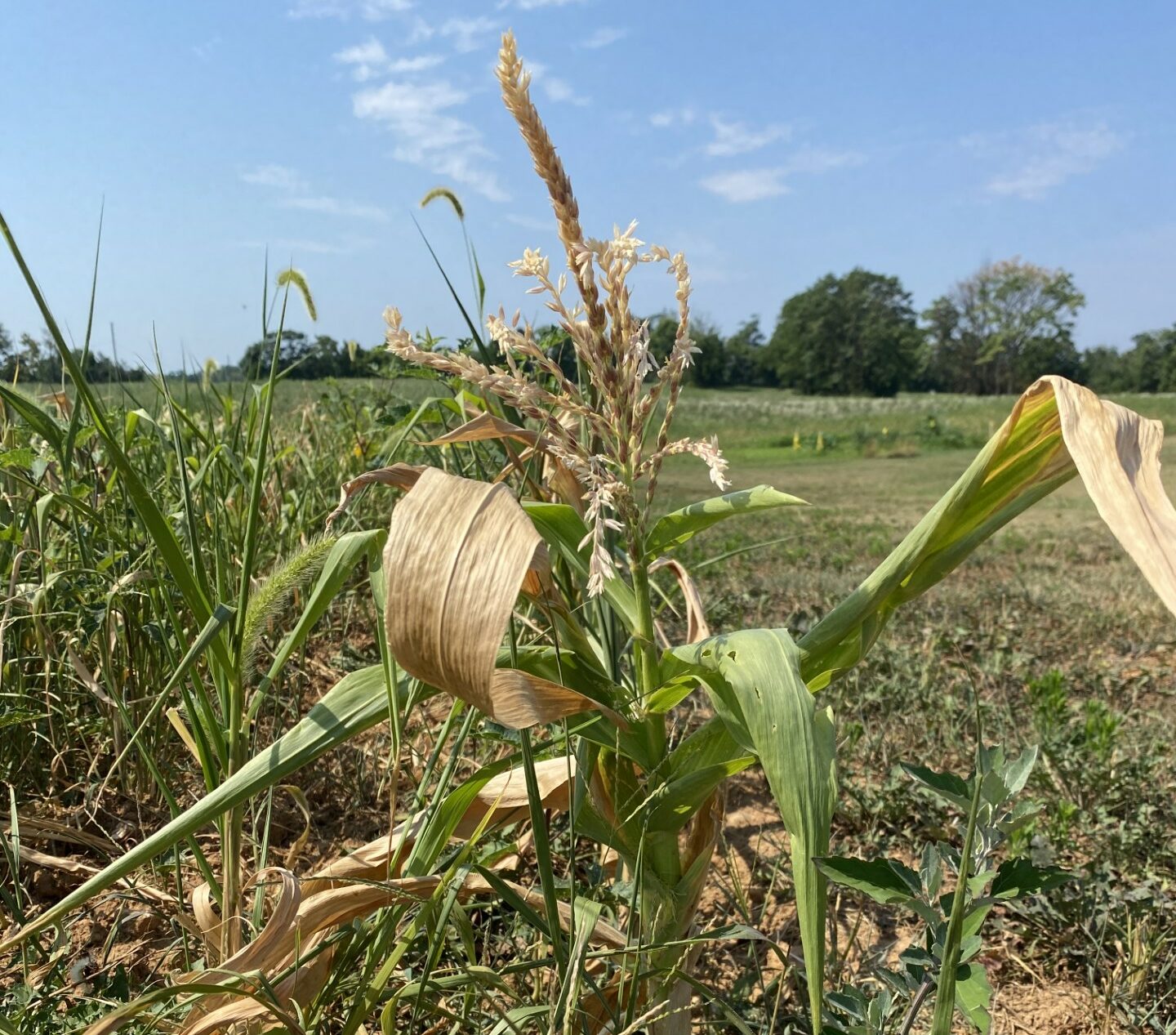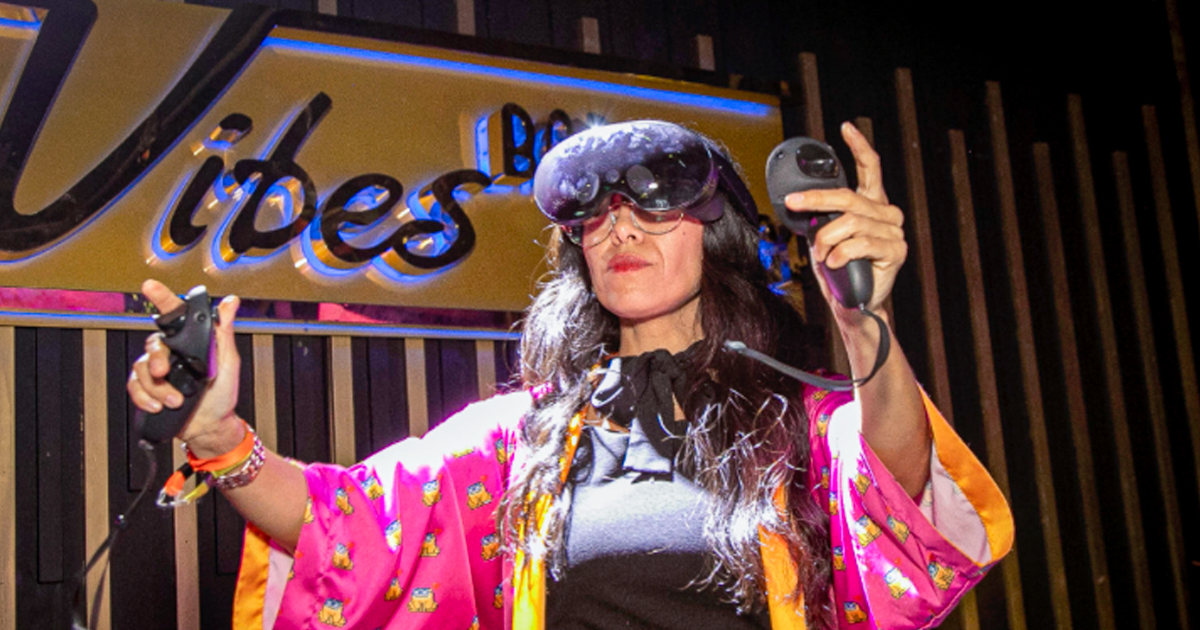World
Russia sinks space nuke ban at UN amid rumors of Putin's orbital weapon
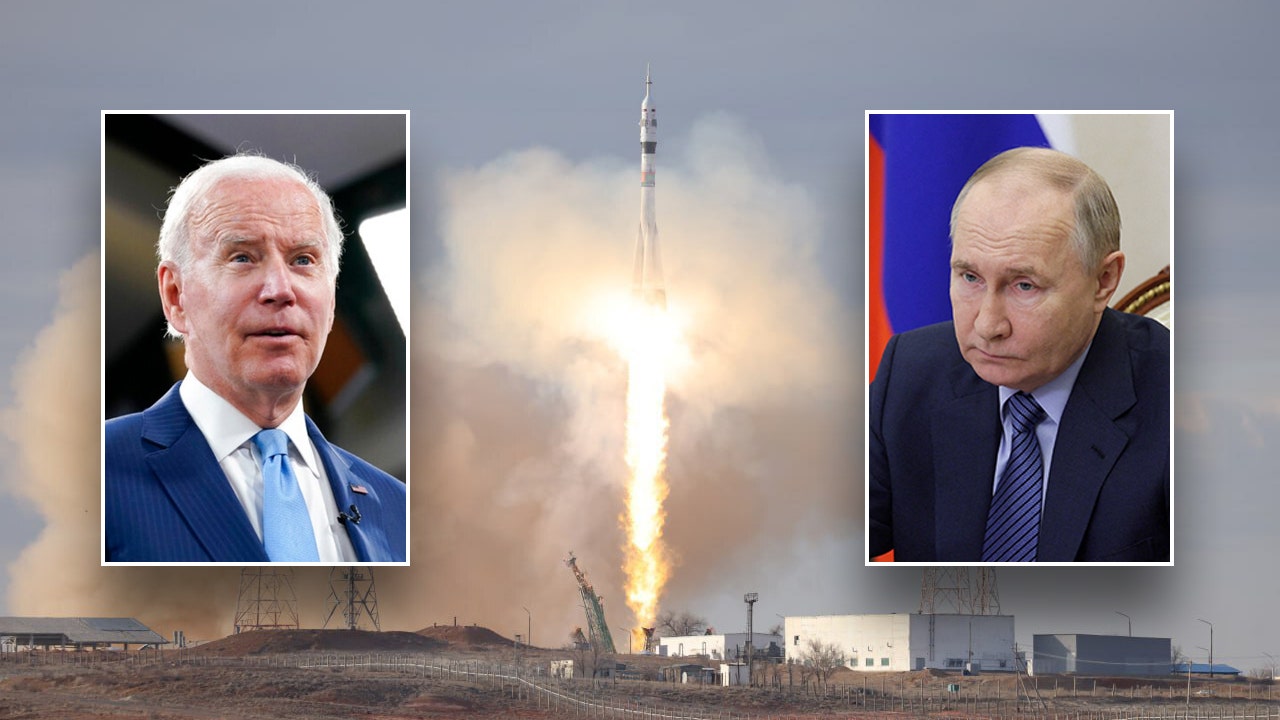
A U.S.-led resolution that would prevent using nuclear weapons in outer space received dozens of co-sponsors, but Russia vetoed the measure amid reports it has deployed a weapon that can destroy satellites.
“The detonation of a nuclear weapon in space would destroy satellites that are vital to communications, agriculture, national security, and more worldwide, with grave implications for sustainable development, and other aspects of international peace and security,” the U.S. Mission to the United Nations wrote in a press release prior to the vote.
“The diverse group of cosponsors of this resolution reflects the strong shared interest in avoiding such an outcome,” the statement read. “We join these Member States in calling on the Security Council to meet this moment today and adopt the resolution unanimously, consistent with its mandate to maintain international peace and security.”
The U.S. and Japan presented the resolution to the U.N. Security Council for a vote on Wednesday, but Russia shot the measure down. Prior to the vote, Russia’s Deputy U.N. Ambassador Dmitry Polyansky reported that his country’s initial impression was that the resolution served as “yet another propaganda stunt by Washington” and called it a “very politicized” effort “divorced from reality,” The Associated Press reported.
GOVERNMENT’S REFUSAL TO DECLASSIFY UFO DOCS IS A ‘COVER-UP’ COSTING TAXPAYERS MILLIONS: GOP CONGRESSMAN
The draft resolution, which received backing from 60 member states, states that “the prevention of an arms race in outer space would avert a grave danger for international peace and security.” It affirms that countries that ratified the 1967 Outer Space Treaty must comply with their obligations.
A Security Council meeting at United Nations headquarters, March 22, 2024. (Getty Images)
The tug-of-war over hypothetical space-based weapons follows claims from the White House in February that Russia had deployed a “troubling” anti-satellite weapon – though no one has yet confirmed the weapon is operational or even in a testing phase.
SOLAR-POWERED, UNCREWED FLIGHTS ARE THE ‘FUTURE’ OF AVIATION: ROBERT MILLER
The weapon would allegedly be capable of destroying satellites by creating a massive energy wave when detonated, Foreign Policy reported. The weapon could therefore potentially cripple countless other satellites that serve both commercial and government purposes, including cellphone use and internet access.
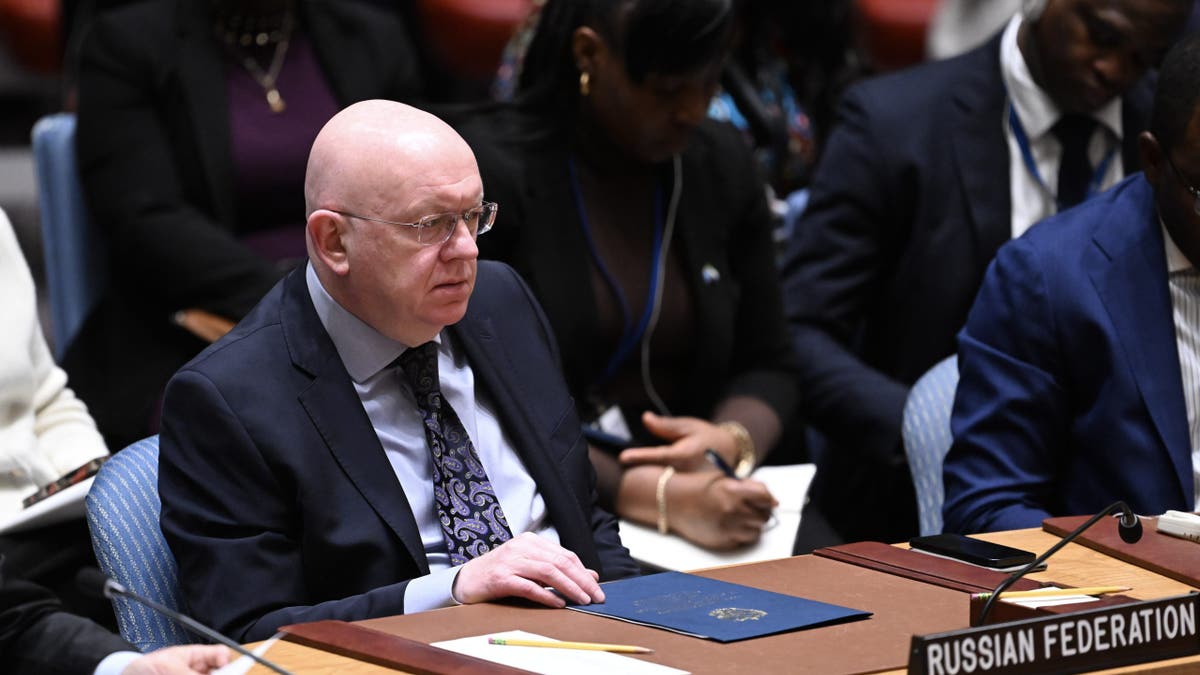
Vassily Nebenzia, Russia’s permanent representative to the U.N., attends a Security Council meeting at U.N. headquarters in New York City on April 14, 2024. (Fatih Aktas/Anadolu via Getty Images)
Russia at the time argued that it would uphold the international 1967 treaty, which bans the deployment of “nuclear weapons or any other kinds of weapons of mass destruction” into orbit or the stationing of “weapons in outer space in any other manner.”
“Our position is quite clear and transparent: we have always been and remain categorically opposed to the deployment of nuclear weapons in space,” Russian President Vladimir Putin said in February. “Just the opposite, we are urging everyone to adhere to all the agreements that exist in this sphere.”
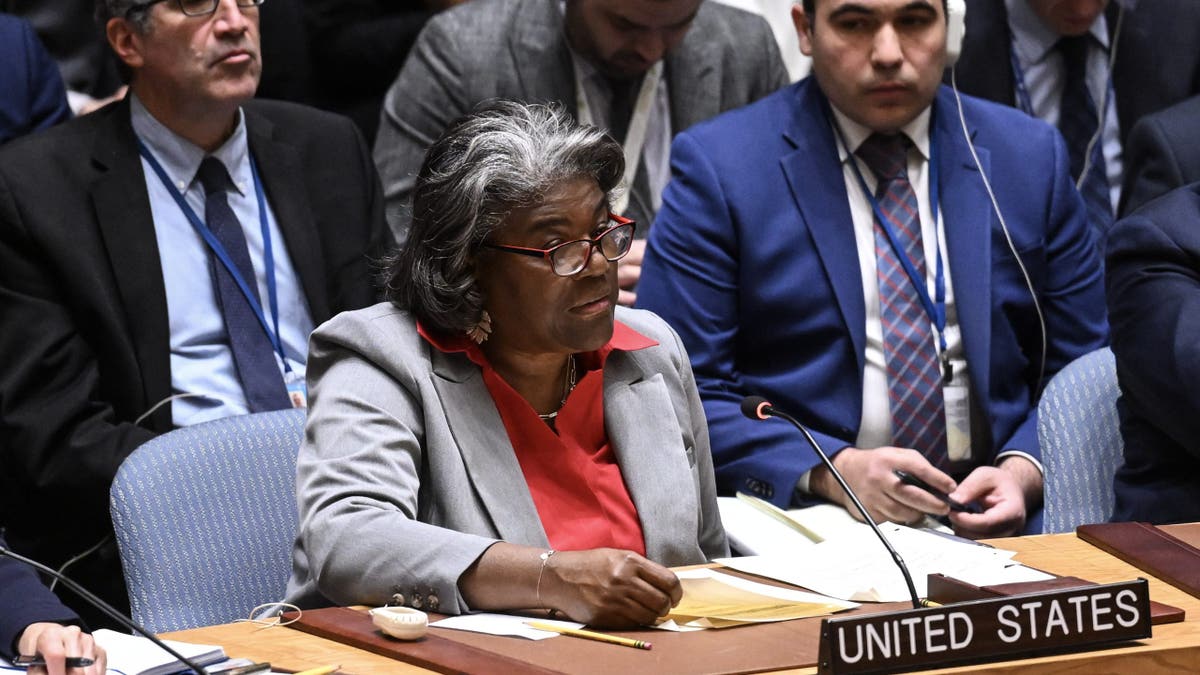
Linda Thomas-Greenfield, the U.S. ambassador to the U.N., attends the Security Council meeting to demand an immediate cease-fire in Gaza on March 25, 2024, in New York. (Fatih Aktas/Anadolu via Getty Images)
However, Russian Defense Minister Sergei Shoigu cryptically added at another time that Russia has only developed space capabilities that “other nations, including the U.S., have.”
RARE STAR EXPLOSION EXPECTED TO BE ‘ONCE-IN-A-LIFETIME VIEWING OPPORTUNITY,’ NASA OFFICIALS SAY
U.N. Secretary-General António Guterres later warned that “geopolitical tensions and mistrust have escalated the risk of nuclear warfare to its highest point in decades.”
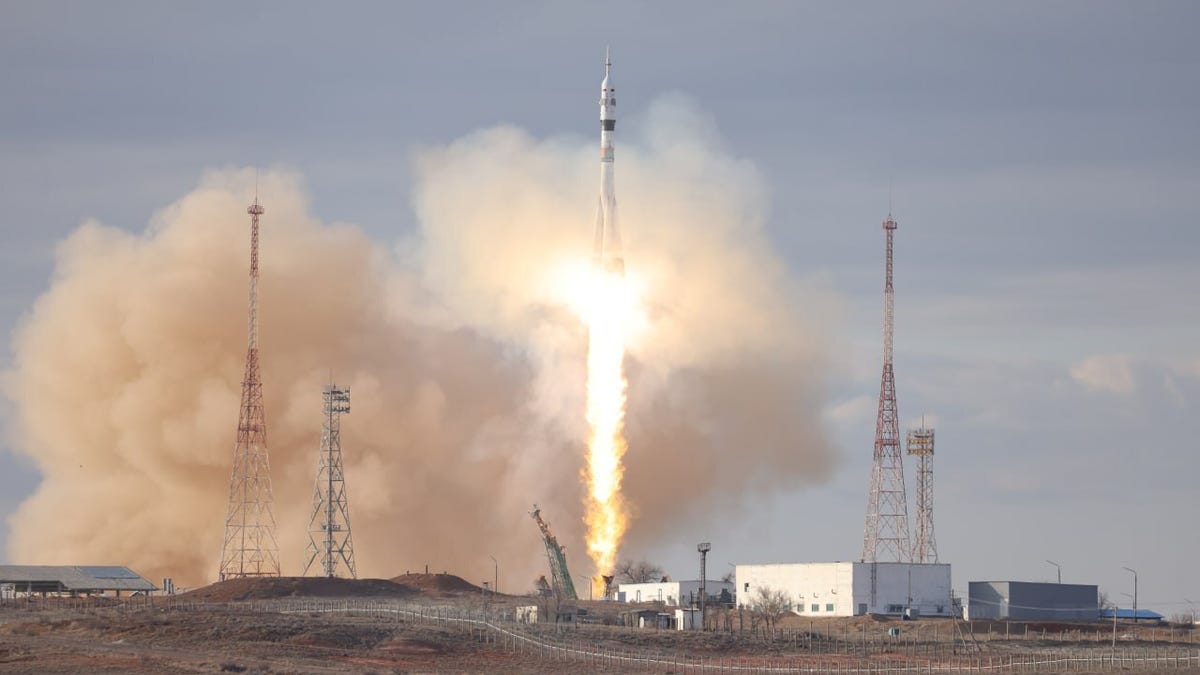
Russia’s Soyuz-2.1a, carrying the Soyuz MS-25 spacecraft, was successfully launched from Kazakhstan’s Baikonur spaceport on March 23, 2024, according to TASS News Agency. (Roscosmos/Ivan Timoshenko/Handout/Anadolu via Getty Images)
Putin, throughout the conflict with Ukraine, has dangled threats of nuclear weapons. He said that “from a military-technical point of view, we are, of course, ready,” when asked in March about a potential nuclear war.
Putin has used the threat of nuclear weapons in Ukraine as a means of preventing more direct intervention from the U.S. and other NATO allies, repeatedly stressing that any deployment of troops or similar more direct moves against Russia would be viewed as intervening in the war.
The Associated Press contributed to this report.

World
Celine Dion Makes Triumphant Comeback at Paris Olympics Opening Ceremony — Watch Full Performance

ad
World
95 Libyan nationals arrested in South Africa at suspected secret military training camp
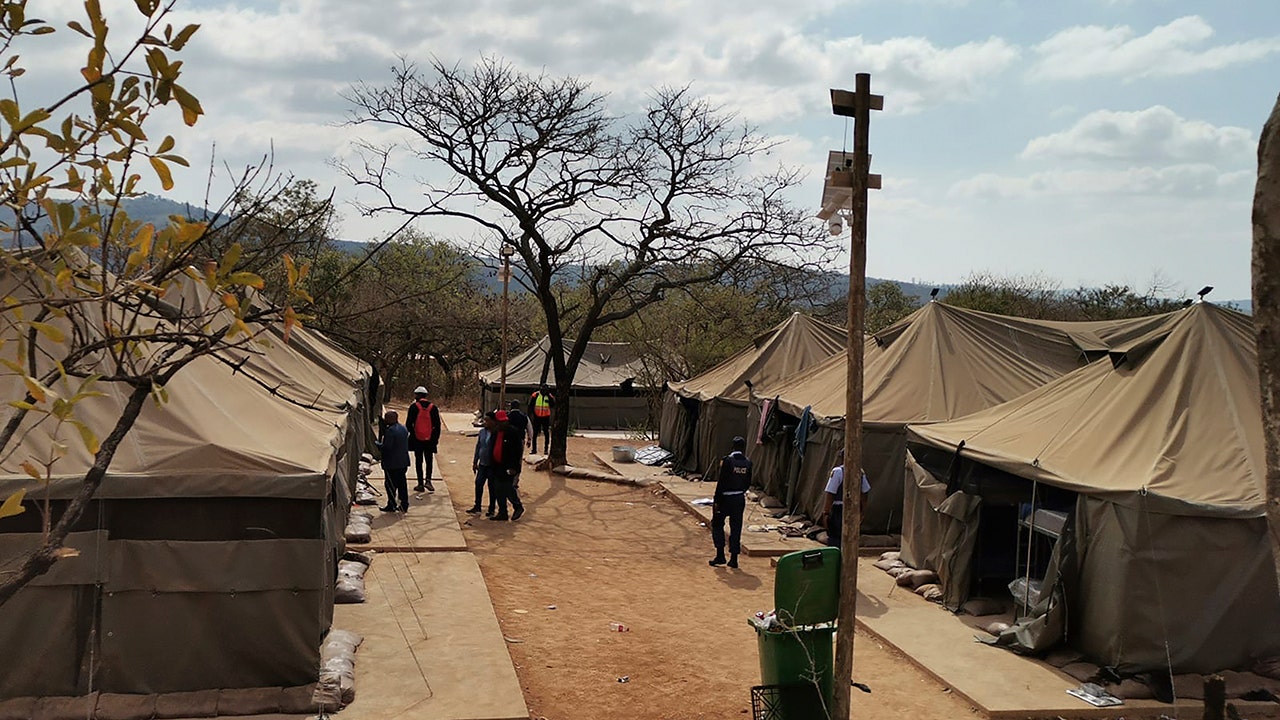
South African police arrested 95 Libyan nationals in a raid on a suspected secret military training camp on Friday and authorities said they were investigating whether there were more illegal bases in other parts of the country.
The camp was discovered at a farm in White River in the Mpumalanga province, about 360 kilometers (220 miles) northeast of Johannesburg, police said.
ELEPHANTS KILL TOURIST IN SOUTH AFRICA AFTER HE TRIED TO GET CLOSE TO TAKE PICTURES
National police spokesperson Athlenda Mathe said in a post on the social media site X that the Libyans stated they had entered the country on study visas to train as security guards, but police investigations suggest they have received military training.
The Newzroom Afrika TV news channel broadcast pictures of the site of the arrests, showing a military-style camp with large green and khaki tents set up in a row. Dozens of men were seen lining up as they were arrested. They were wearing civilian clothing.
Local government official Jackie Macie said investigations were ongoing and the owner of the farm would be questioned. He said authorities received information that there were similar secret camps near two other towns in Mpumalanga province.
A camp where 95 Libyan nationals were arrested on suspicion of running an illegal military camp are seen lining up after their arrest on Friday, July 26, 2024 in White River, South Africa. Police say that 95 Libyan nationals were arrested on suspicion of receiving training at a secret military camp in the north of the country. (AP Photo/Bulelwa Maphanga)
The province borders neighboring countries Mozambique and Swaziland and is an area of concern for South African authorities with regards to illegal immigration.
Police and authorities have not said whether the camps are suspected of being connected to a particular group or conflict.
Macie said investigations would establish if there was a network of camps in South Africa and show “why they are here doing military training in our country.”
Police said the men may be linked to crimes reported in communities close to the farm in recent months.
“We have serious cases which have been opened with the police, including cases of rape and armed robberies, which complainants claim were committed by unknown foreigners who seem to be of Asian descent,” said police spokesman Donald Mdhluli.
“We take what we have found here today very seriously because we don’t know who was training them, what were they being trained for and why that training is happening here in South Africa. It may be a threat not only to South Africa but also to the entire southern Africa region.”
Police said the operation to arrest the Libyans and close down the camp began two days ago. Macie said the Libyan nationals had been in the country since at least April.
“The 95 individuals taken into custody are all Libyan nationals and are currently being questioned by the relevant authorities,” Mpumalanga acting provincial police commissioner Maj. Gen. Zeph Mkhwanazi said in a statement.
Mdhluli, the police spokesman, said the country’s security regulator had confirmed that the kind of training that appears to have been taking place at the camp was well beyond the scope of training for security guards.
“The kind of equipment we found here shows that there was intense military training taking place here. This was basically a military base.”
World
Passengers face long, uncertain wait at stations amid rail disruption

A deliberate fire in a signal box about 60 km south of Lille caused the disruption on the northern high-speed line, with traffic halted around 5 a.m. local time on Friday.
Travel was severely disrupted in Lille on Friday, one of the stations affected by the sabotage that hit major French rail lines ahead of the Paris Olympics opening ceremony.
Many passengers waited with hope that soon turned to resignation.
“We’ve been waiting since 10:38 a.m. for the 11:38 a.m. train, and now we’re just waiting for it to arrive at 2:08 p.m.,” said Delphine, one of the stranded passengers.
“It’s still quite a delay, and we’ll be even later since we’re on a secondary route. I work in Avignon at 9 p.m., so it’s going to be very, very tight. We have a concert tonight — will it even happen? This is all very confusing, and we don’t understand what’s going on.”
For one traveller, this was a rough start to the holidays. “The worst case would be if the train is cancelled entirely and we have to buy new tickets for next week. It would shorten our already brief vacation. That would be a huge problem,” said Hippolyte.
When asked if he had been informed of the delays, Hippolyte said he received the notification just before departure.
“At around 10 a.m. this morning, we were told we were an hour late and would be leaving at 1 p.m.”
“It just keeps getting later as the day goes on. Every time we approach the new departure time, it gets pushed back another hour and a half, or half an hour each time.”
A deliberate fire in a signal box about 60 km south of Lille caused the disruption on the northern high-speed line. Traffic was halted around 5 a.m. on Friday.
The recent acts of sabotage on the rail network highlight that the Olympic Games are turning France into a prime target.
The attack disrupted the transport system on the opening day of the Games, causing delays of up to two hours or even cancellations that affected hundreds of thousands of passengers nationwide.
Authorities in Paris have said they are deploying substantial human resources to counter any threats and to ensure the safety of the events.
-

 World1 week ago
World1 week agoOne dead after car crashes into restaurant in Paris
-

 Midwest1 week ago
Midwest1 week agoMichigan rep posts video response to Stephen Colbert's joke about his RNC speech: 'Touché'
-

 News1 week ago
News1 week agoVideo: Young Republicans on Why Their Party Isn’t Reaching Gen Z (And What They Can Do About It)
-

 News1 week ago
News1 week agoIn Milwaukee, Black Voters Struggle to Find a Home With Either Party
-

 Politics1 week ago
Politics1 week agoFox News Politics: The Call is Coming from Inside the House
-

 News1 week ago
News1 week agoVideo: J.D. Vance Accepts Vice-Presidential Nomination
-

 Movie Reviews1 week ago
Movie Reviews1 week agoMovie Review: A new generation drives into the storm in rousing ‘Twisters’
-

 World1 week ago
World1 week agoTrump to take RNC stage for first speech since assassination attempt

